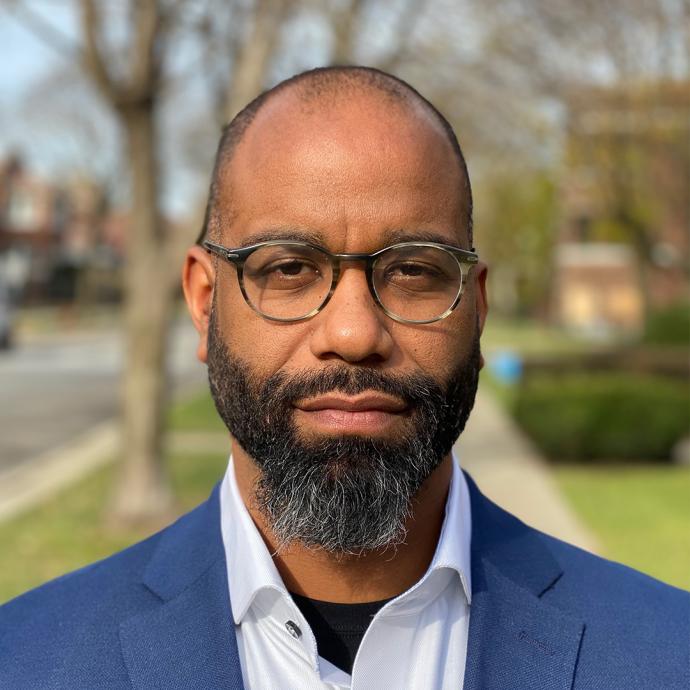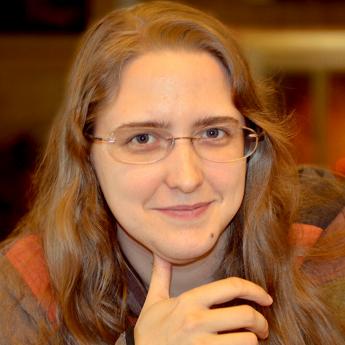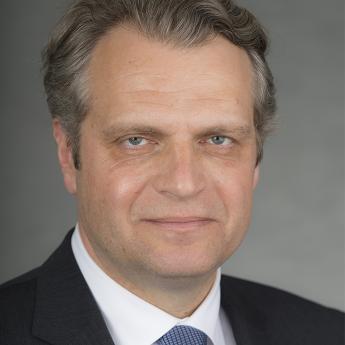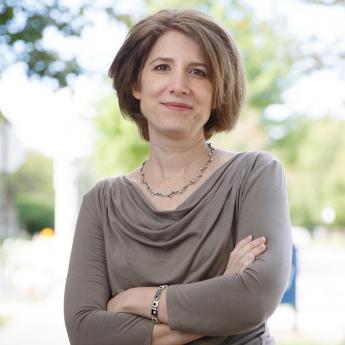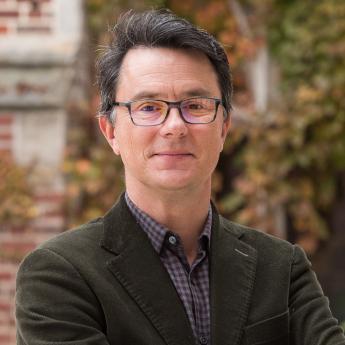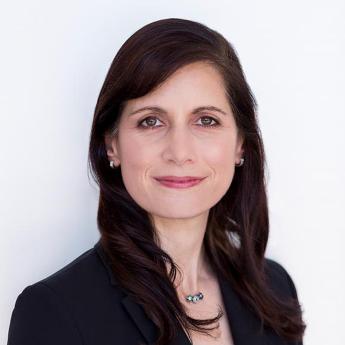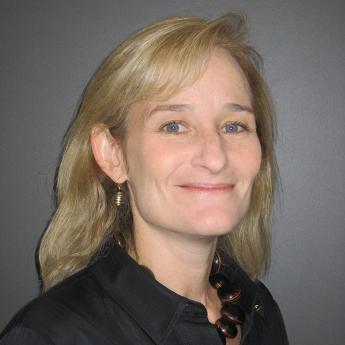Show Notes
For the more than 20 million people with a felony record, incarceration doesn’t end at the prison gate. They enter what University of Chicago scholar Reuben Jonathan Miller calls the “afterlife” of mass incarceration.
Miller, an assistant professor at the Crown Family School of Social Work, Policy and Practice, is the author of a new book, Halfway Home: Race, Punishment and the Afterlife of Mass Incarceration—an intimate portrait that draws on his sociological research and personal experiences. It’s a unique sociological look at our system of mass incarceration and how it continues to imprison people after their sentence and also punishes their families.
Subscribe to Big Brains on Apple Podcasts, Stitcher and Spotify.
(Episode published March 25, 2021)
Related:
- The “afterlife” of mass incarceration
- In new book, scholar offers intimate portrait of mass incarceration’s toll on society
- ‘Halfway Home’ Makes Case That The Formerly Incarcerated Are Never Truly Free
- New Book ‘Halfway Home’ Explores Life After Incarceration
- Nearly 20 Million Americans Have a Felony Record. What Happens After They’ve Served Their Time?
- ‘You Have One Minute Remaining.’ Why I’ll Always Drop Everything to Answer My Brother’s Calls From Prison
- For 20 million felons, the punishment never stops
Transcript:
Paul Rand: Each year, more than a half a million Americans are released from prison, joining an ever-growing population of 20 million people who live with a felony record. But life after incarceration can be its own form of prison.
Reuben Jonathan Miller: Prison is like a ghost. It haunts you. It haunts you.
Paul Rand: That’s Reuben Jonathan Miller. If you are a longtime listener of the show, you might recognize his voice. He’s a professor in the Crown Family School of Social Work, Policy and Practice at the University of Chicago. And he’s the author of a new book Halfway Home: Race, Punishment, and the Afterlife of Mass Incarceration.
Reuben Jonathan Miller: Yeah, the afterlife is the lingering effects of prison. It’s the way that jails and prisons show up, the way that mass incarceration shows up in the social world, transforming it, changing its shape, the way it leaves its imprint and the way it changes people.
Paul Rand: Miller spent 15 years interviewing nearly 250 people caught up in the prison industrial complex, prisoners, ex-prisoners, their friends and their families. And he offers a new framework for understanding the problem.
Reuben Jonathan Miller: I think that the problem with mass incarceration is a problem of citizenship. It’s a problem of political membership. We’ve produced an alternate track for people that we’ve accused of crimes.
Paul Rand: The book is a feat of scholarship, but it’s also deeply personal, something sociologists often avoid. Miller wants to change that standard.
Reuben Jonathan Miller: My personal life begins to intersect with it. Here’s the reason, because I couldn’t avoid it if I wanted to. I was born poor and black after 1972, the year that mass incarceration begins in earnest. And so what we’re taught to do is to distance ourselves from the social realities in which we’re embedded, but there’s some limitations to that. There are things that I see that people who’ve been in my situation, but have detached themselves from it, are either unable to see or who have refused to write about.
Paul Rand: From the University of Chicago Podcast Network, this is Big Brains, a podcast about the pioneering research and pivotal breakthroughs that are reshaping our world. Today, the afterlife of mass incarceration. I’m your host, Paul Rand.
Paul Rand: This might sound obvious, but Miller says it’s important to start with a simple reminder. The criminal justice system is not like what you see on TV.
Reuben Jonathan Miller: I think that the popular imagination is that of CSI or a legal show and gum shoe detectives that get to the truth. What really happened? Who did what under what circumstances? I’ve got the smoking gun. I’ve got the blood on the shoe. I’ve got it. We get to the truth of the matter.
Reuben Jonathan Miller: Well, we never quite get to the truth of the matter in a criminal investigation. Ninety-five percent of all criminal investigations are resolved with plea deals, which necessarily means you’re accepting a conviction based off something that may remotely look like something you may have done, but prosecutors will say you got a deal. It’s a lesser charge.
Reuben Jonathan Miller: But if you talk to defendants, they’ll tell you it’s not a deal. It’s not a lesser charge. I said yes to this because I was a year locked away from my loved ones, because the judge was waving 77 years over my head, and it was either take this charge or go to jail or prison for the rest of my life. And I knew that if I fought this charge, I would lose. And so because 95% of cases are resolved in this way, we don’t get to the truth, the heart of the matter.
Paul Rand: The United States has the largest prison population in the world and the highest per capita incarceration rate. This isn’t an accident and it isn’t inevitable. Our laws, systems and histories have created an entire population that is separated from the rest of society.
Paul Rand: You say that mass incarceration is not really about crime.
Reuben Jonathan Miller: That’s right.
Paul Rand: You say it’s actually about citizenship. What do you mean by that?
Reuben Jonathan Miller: Yeah, the problem of mass incarceration is a problem of citizenship, because what mass incarceration does is it amputates people from the social body. It disappears them into an American jail or prison for a period of time. And then when they come back, they’re still pushed to the outskirts though they’re here through law and policy. Forty-five thousand laws, policies and administrative sanctions that keep people from fully participating in the political economy, in the social life of the city, in the politics of the city.
Reuben Jonathan Miller: And so though you may be here with us and among us, you’re unable to be fully human participants in a human community. In other words, we’ve made it so that you don’t belong. There’s no place for you. And citizenship, at the end of the day, by my definition and by the definition of other citizenship scholars, is about belonging. It’s about political membership. It’s about having a place in the community. It’s about the ability to move within and through it. It’s about having a set of rights. It’s about having sense of protections.
Reuben Jonathan Miller: Though people with criminal records may be next to us every day, and they are, because one in two Americans has a formerly incarcerated loved one.
Paul Rand: Wow.
Reuben Jonathan Miller: In other words, one in two Americans have someone close to them who’s been to an American jail or prison. Though one in two, they don’t have a place in our society. We haven’t made one for them in our society, nor have we made one for them even in the public’s imagination. Because we think that they’ve done things. We presume that they’ve guilty. We presume that they don’t deserve a place.
Reuben Jonathan Miller: And so one question is, does the punishment match the crime? All these shadings, all these caveats, all these things that, at the end of the day, should raise questions about how we punish, why we punish, and the ways that we punish in what we hope to accomplish through our systems of punishment.
Paul Rand: You may have missed it, but it’s worth repeating something Reuben said. There are 45,000 laws, policies and sanctions at the federal, state and local level that shape the lives of people with a criminal record. Forty-five thousand laws restricting them from full citizenship after serving time.
Reuben Jonathan Miller: In a state like Illinois, that over 1200, including over 500 employment restrictions, meaning that there are hundreds of categories of employment for which people with criminal records need not apply. This means that people with criminal records, job applications can be denied without any reason. It means that they can be evicted from their homes.
Reuben Jonathan Miller: There are laws that say that if you live in public housing, for example, if you allow somebody with a criminal record to visit your home, the person who’s in ‘‘control of the premises’’ can be evicted. This was established in 1988 and it was supercharged after the 1996 State of the Union Address by President Clinton, who called for us to be more careful about harboring crime in public housing.
Reuben Jonathan Miller: That’s the formal expression. I didn’t mention the conditions of release that you get handed when you walk out of the jail or prison. That tells you not only what you may not do, what these restrictions do, but tell you what you must do that other people could never be compelled to do. You must, for example, submit to a drug test. You must pee in a cup once a week. You must report to a workforce development agency and fill out X number of applications. You may not cross state lines, something that’s formally legal for other people. You may not drink alcohol despite whether or not you’re over the age of 21.
Reuben Jonathan Miller: And you may not do the bedrock of American democracy, which is to associate with people in your situation. You may not associate with known offenders. And again, the association clause in these conditions of release attacks the freedom of association, which allows for us to get together in groups and bring about the kinds of change that we hope to bring about.
Paul Rand: Now, those are the kinds of rules that are written down, what Miller calls the formal side of things. But there’s an informal side, he says, that happens on a community level.
Reuben Jonathan Miller: When I give the State of the Union Address and I say to public housing agencies, to HUD, that your new mandate is to ensure that people with criminal records are evicted. One strike and you’re out, so said the rule. What this means is that the HUD agencies will take this up and begin to evict in mass people with criminal records and start denying application. So much so that application denials doubled in the six months after that declaration, after that State of the Union Address. So much so that evictions increased. So much so that now a grandmother can be evicted for allowing her grandson to sleep on the couch.
Reuben Jonathan Miller: The informal thing is that I’ve now drawn the grandmother into the punishment, you can be evicted. But I’ve also drawn the grandmother into the crime-fighting machinery of the nation. Grandmother, you now must administer a punishment, deny something to someone who you would ordinarily help. And what that does, this is the afterlife, is it transforms the very nature of that relationship, where there’s a new tension that’s introduced because power is introduced in a new way.
Paul Rand: All of these things come into creating what you talk about as an economy of favors.
Reuben Jonathan Miller: Yes.
Paul Rand: Talk about that.
Reuben Jonathan Miller: What happens is all these things that prevent you from fully participating in the economy, lock you out of the economy. So it’s very hard. It’s not impossible, but it’s incredibly hard for you to feed yourself, for you to take care of yourself, and so you have to rely on the help of others.
Reuben Jonathan Miller: That’s one half of it, but the other half are the changes in liability law that we see happening in the 1970s and 1980s that make people who help people with criminal records responsible for the actions of the so-called criminal. These nuisance ordinances that get passed that allow landlords to be sued for harboring ‘‘criminogenic environments’’ means that landlords get sued in court for the first time in us history beginning in the 1980s. Tenants win. They say landlords harbor criminality. Landlords are then made responsible for crime fighting, for maintaining premises that don’t harbor criminality. They respond by evicting residents who have criminal records, you see, by avoiding the risk itself.
Reuben Jonathan Miller: And so the grandmother who now wants to help is in a bind, in other words. She really wants to help her grandchild. But if she helps her grandchild, she puts her own livelihood and the livelihood of perhaps her other grandchildren, her partner, the people she cares for along with this child at risk. So the economy of favorites, it’s kind of a pincer move. On the one hand, it produces a situation in which people with criminal records are made needy. They’re made needy. And on the other hand, they’re made the least desirable candidates to help because helping them can cost you your livelihood. And so you have to elicit favors from people who are punished if they help you.
Paul Rand: If you don’t have familiarity with this world, you might be asking yourself, ‘‘Well, what about re-entry programs? Aren’t those supposed to be there to help?’’
Reuben Jonathan Miller: They absolutely help. But the question is, help with what? Re-entry programs relieve real human suffering in real time. The folks who I’ve met, who were running these organizations were beautiful people, but the problem of mass incarceration is a problem with citizenship. And so what the organization can do is it can prepare people with criminal records for the labor market, but it can’t do anything to prepare the labor market for people with criminal records. It can prepare people’s criminal records for the housing market. It can train them in how to write checks and how to interview with a landlord, how to look them in the eye, how to resolve conflict, how to keep a clean home. And it does all those things wonderfully, beautifully, powerfully.
Reuben Jonathan Miller: But what it can’t do is it can’t get around the 30 housing restrictions in the state of Illinois. It cannot get around that. What it has to do is it has to work with the handful of landlords that will rent to people with criminal records. It can work with the handful of employers that will employ people with criminal records.
Reuben Jonathan Miller: And so what we need outside to help support these wonderful efforts is to push the labor market, the housing market. We need to push in civic life so people with criminal records in every state can do things like sit on a jury to ensure that they’re getting tried by a jury of their peers. So they’re not walking into a situation like this over and over and over again, you see. It’s a citizenship problem. That’s the scale. This scale, the place to direct one’s energy. It should be at this idea of political belonging. If we get that right, then a social service can do much greater work than it could do otherwise
Paul Rand: Mass incarceration and its afterlife does not affect all groups equally. Of the 2.3 million people who are incarcerated in the US, 40% are black, 84% are poor and half have no income at all.
Reuben Jonathan Miller: If you’re born poor and black in this country after 1972, one in three of you, if you don’t graduate high school or college, is going to end up in a jail or prison.
Paul Rand: When Miller talks about how we, as a country, got here with mass incarceration, he doesn’t start with the war on drugs or modern policing. He starts with racial slavery and the presumption of guilt ascribed to the black body.
Reuben Jonathan Miller: The moment of colonial encounter is the moment that we produce a people. We produce a black people. This group of differently organized groups is one homogenous mass. They are shiftless, lawless, godless. They are naked. They are of a different religious and ethical persuasion than we are. They are other. Oh, and look, they resist. They resist us when we go to capture them.
Reuben Jonathan Miller: And so we start writing law and policy like that when we write law and policy in relation to this group. And it reflects this moment of encounter which was a moment of capture. This is something we have to remember. The moment I see you, I see you as something I’m going to apprehend. But the view of violence, the view of guilt, the view of sin follows this group. This group that I happened to be a part of, by the way. This group that my family, everyone I love, we are made in the imaginations of those that would judge us.
Reuben Jonathan Miller: And so you can’t understand why Tamir Rice was murdered by those police officers if you don’t fully understand that Tamir Rice wasn’t looked at as a boy at all. And the literature that tells us now that black boys are seen as four years older on average and more guilty, it doesn’t fall out of the sky, it comes from a long legacy of guilt and the presumption of violence and the stripping of innocence.
Paul Rand: Now, there’s another statistic that Miller says we need to consider.
Reuben Jonathan Miller: Eighty-four percent of this group is poor, 40% are black, 40% are white. Forty percent are white. Thirty-eight percent of white boys, and I mean boys, will be arrested before they turn 23. It’s 38% will be arrested before they turn 23 years old in this country. Mass incarceration doesn’t stop at the threshold of the black family. There’s 900,000 white people in an American jail or prison. If we released every black prisoner tomorrow, we have one of the largest prisons in the world, but we haven’t stripped white people from their innocence. And so we don’t talk about race and punishment in the same way.
Reuben Jonathan Miller: Our failure to identify with black people creates a problem in which we fail to identify a real problem in this country that affects the entire country. Though it disproportionately affects black people. I don’t want to come off like one of these guys who doesn’t think that, for example, race matters. It clearly matters. Black people are five times more likely to be incarcerated for the same crime. They do longer sentences when they’re arrested. Ten percent on average at the state level, 20% on average at the federal level.
Reuben Jonathan Miller: The racial disparities are egregious, but the point is that it’s not contained. And this is how racism works by the way. Racism works in ways that hide the problems that we’ve produced for all of us. We overlook what we’re doing to poor white people in this country. We overlook one in eight white women has a currently incarcerated loved one. So when people say to me, ‘‘Well, what do we do about people who aren’t affected by it?’’ I wonder, which people?
Paul Rand: After the break, Reuben Miller on how the afterlife of mass incarceration has shaped his own life and how that’s led him to develop what he calls ‘‘the sociology of being together’’.
Paul Rand: You speak, Reuben, of all the things we’re talking about with an incredible intimacy and an urgency. How did you get to this? You’re you’re not a detached scholar. Talk to me how you got to this point.
Reuben Jonathan Miller: I’m not a detached scholar. This is true. There are a few ways where it intersects. The first was an ethical commitment. I was a religious volunteer and I was drawn to work with these folks because I was moved by a scripture, which said, ‘‘When I was sick and in prison, did you visit me?’’ That was the thing that drew me.
Reuben Jonathan Miller: Well, when I got there, I not only saw people who looked like me, moving in and out of the jail and prison, but my own family members started to become incarcerated. So while I’m doing research for the book, not knowing I was going to write a book, right, but just doing my work because I’m now a scholar. I go from a chaplain to a social worker, to studying mass incarceration. And while I’m doing this work, navigating jails and prisons, my brother gets arrested and is locked up. And now, I’m in the same position that my family is.
Reuben Jonathan Miller: My personal life begins to intersect with it. Here’s the reason, because I couldn’t avoid it if I wanted to. I was born poor and black after 1972, the year that mass incarceration begins in earnest. And so what we’re taught to do is to distance ourselves from the social realities in which we’re embedded, because there’s worry in the social sciences especially that there’s a kind of bias that will creep in.
Reuben Jonathan Miller: There’s some benefit to that. You’re able to predict things. You’re able to count things in certain kinds of ways, right? But there’s some limitations to that. There are things that I see that people who’ve been in my situation, but have detach themselves from it, are either unable to see or who have refused to write about, which is why my work on the economy of favors is a new work. And I’m not saying that to be like pompous or something like that. I say that to say things were revealed to me because I allowed my proximity to teach me something about the social situation that people were maneuvering.
Reuben Jonathan Miller: My brother was in jail and prison. I learned later... I met my father at 26. This is not an unusual circumstance for scholars who come from where I come from in our situation. I learned that he was in jail and prison for 20 or so years. I had another brother who had been arrested frequently. This is because the prison is like a ghost. It haunts you. It haunts you.
Reuben Jonathan Miller: Poverty is the same way. People who come from poverty will talk about the ways that poverty shows up in these unexpected ways, the lingering effects. And it’s not all negative. This is part two. It’s not all terrible. What I think I get from my proximity to this situation is new insight on what the problems are and how best to approach them.
Paul Rand: Even as we’re talking now, I mean, you’re speaking, and I use that word intimacy, and how did you come to the idea that presenting your scholarship through this intimacy was the best way of really making sense of all the research and the data and the history that’s going on here? That’s not a common way of presenting research, is it?
Reuben Jonathan Miller: No. No, it’s not common, and there’s a risk. Anytime you allow yourself to be vulnerable, there’s a risk.
Paul Rand: What was the risk here?
Reuben Jonathan Miller: Well, I mean, there’s professional risks. My colleagues might not understand what I’m doing. They might not value what I’m doing, but it would be dishonest to write myself out. We have to really reckon with this. One in two Americans has a loved one who’s been to an American jail or prison. Why don’t we know that? Why don’t we hear about that? Why is all the work written from such a distance? Why are the insights that we gained from my book new insights? Why wasn’t this book written earlier? Because we distanced ourselves from the knowledge that we could gain by allowing ourselves to be closed.
Reuben Jonathan Miller: The goal of ethnography is to take on, I call it, emic perspective, right? To understand from the perspective of the other, the so-called other. Well, I’m saying, what if we eliminated that distance, right? Like what if I didn’t write the book in such a way that I’m explaining anything? What if I wrote a book in such a way that I’m relaying rather than explaining? By that, I mean, I’m not trying to do this, this intimate work of translation for a certain set of ears that’s outside, that’s foreign to. What if I wrote from the perspective of one who inhabits the body of someone who moves through those same spaces?
Reuben Jonathan Miller: But I would hear from people over and over again when I would report out what I found, when I shared my findings. People would come up to me and say, ‘‘Reuben, I knew this to be my situation, but I didn’t have the words.’’ That’s so much more valuable than a colleague fully understanding what I’m trying to do, for me.
Paul Rand: Well, you used some words that I thought were interesting. You said that this is ‘‘your attempt at a sociology of being together’’.
Reuben Jonathan Miller: Yes.
Paul Rand: What do you mean by that?
Reuben Jonathan Miller: We’re taught, sociologists are taught to have, and not just sociologist, social scientists generally, are taught to maintain critical distance and to write as if we’re explaining what we found to a generalist reader or a specialist in a field. In other words, we’re taught to write to people who are not the folks we’re following. Because the folks that we’re following are presumed to be other, are presumed to be ‘‘not normal’’.
Reuben Jonathan Miller: And even when we plan to say bring a more empathetic rendition of the social situation of say the urban poor or something like that, or the social situation of the refugee or the immigrant who’s been deported... name your group, whoever you’re following, because we use the tools of the trade in the ways that we do, we still force distance in between us. It happens in our methods with the kinds of questions that we ask. It happens in our writing when we write about what we found, and it happens in how we gather the data even.
Reuben Jonathan Miller: And so what I wanted to do was engage in a kind of sociology that walks with. That doesn’t that doesn’t try to jump in your skin to understand your experience. I can’t. This is what I call the limits of the empathetic imagination. Empathy requires me to walk a mile in your shoes or something like that. But when I try, I can’t because I’m limited by my experiences. I’m limited. But what I’d rather do, what I’m trying to do in this book is I’m trying to understand my own stuff in a deep and powerful way. And from the position of my pain, my joy, my hurt, and all the stuff I’m told to put to the side in the scientific tradition, bracket that off, put that in the box. No, that stuff informs my interest, by the way. It got me to the field in the first place.
Reuben Jonathan Miller: I’m going to take that stuff. And what I want to do with that is I want to try to understand it in a deep way and its relationship to the thing that I’m studying. And from that position, I want to understand what you’re experiencing. It’s like a good friend who sits with you when someone close to you has died. We’ve all likely experienced this. I’ve experienced it this way. The people who are closest to me are the people who sometimes just come and sit, because sometimes I just need somebody to sit with me, to be with me. Let’s be together. And they might have never experienced the loss of their grandmother. They may have never gone through it, but they know their own pain. And they try to meet your need from that position of understanding what it’s like to be in pain, not to understand yours. This is what a sociology of being together offers.
Paul Rand: Okay. You touched on him a short bit ago is your brother Jeremiah, and he plays a prominent role in this. And he was sentenced back in 2016, if I recall that correctly. Is that right?
Reuben Jonathan Miller: Yep, mm-hmm (affirmative).
Paul Rand: And I wonder if you can take us back there and give us the backstory here.
Reuben Jonathan Miller: Well, he catches a case of... and I don’t talk about what the case is for on purpose because it’s his story to reveal. He can write his own book. But he catches a case in my house while I’m gone doing research. In 2016, I’m investigating jails and prisons in Europe. I’m doing a tour. Then I come home to like movie from the eighties, Home Alone, one of these [inaudible 00:25:48] movies. Anyway, and so he’s locked up. He’s locked up for about 18 months, which is basically the period in which I’m sort of wrestling with and doing lots of the writing for this book. Certainly, planning it.
Paul Rand: So you got a firsthand look at this?
Reuben Jonathan Miller: Oh yeah. Oh yeah. Oh yeah. I’m watching him go through the system, his plea deal, his court appearances, his visiting with him while I’m visiting with others. I chose to write the book in the way that I chose to write the book because there’s something about the sociology of being together. Something about this closeness I’m trying to bring us to, and I’m trying to demonstrate that.
Reuben Jonathan Miller: And so a part of why Jeremiah is in the book is to help us understand, to get close to the situation, to see it granularly. What happens actually on the ground? And what does that feel like and what does that look like? And what does that smell like? How does it happen, when does it happen, under what circumstances does it happen?
Reuben Jonathan Miller: When you know all that stuff, you can then assess the veracity of my claims. When I say this is about citizenship, you can look at what it smells, feels, what you experienced as you walked through the book. As you walk through the chapters in the book, you can assess the emotional content of it to see if it feels like citizenship. And you can assess what we may presume to be the objective contents of it. To see if it actually is a question of citizenship. And this is the way that I try to relay this technique that I’m calling a sociology of being together.
Paul Rand: Okay. There’s a paragraph in the book and I’m going to pull it out because you talked about the psychological tolls of being exposed to incarceration. Certainly when it came to looking at your brother, you were feeling it the most. There’s the one section that starts with ‘‘Any boxer... ’’ Can I trouble you just to read that paragraph for me, if you have it handy?
Reuben Jonathan Miller: Any boxer that will tell you that it’s the punch you don’t see coming that puts you down. The collect calls you didn’t expect. The court date you didn’t have the gas money to attend. The conversations you dreaded having with your children about why their uncle was in prison and when exactly you expected him to come home. The honest answer was that you weren’t sure. The $2.95 processing fee that brings your bills above your budget. The $292 that you’ve overdrawn in your account. The six $34 overdraft fees because you didn’t budget the last collect call. The overprice boots. The unexpected embarrassment as you sit at your desk entering your loved one’s order for 30 packages of ramen noodles. What it feels like when Michigan Packages runs out of the flavor of ramen noodles he wanted. The fact that you know, or at least you think that you know, that no one else is in your shoes. It’s these little things, the daily disruptions that manage to put you down. Shame does it too.
Paul Rand: So much of, again, the book feels very intimate. And I wonder now that you’ve done this and the reaction that you’re getting, do you feel that this close of intense writing and the personalities you brought into this are helping people understand more of what you were trying to hope they would learn out of reading your book?
Reuben Jonathan Miller: It’s such a great question, because some things... That’s my deepest hope. It’s my deepest hope that when you read that passage you know what it felt like in that moment. And I think we need that for two reasons. I think we need that for the identification with other human beings who we’ve put through this. This is a condition of law and policy. This is something that we’ve done. We’ve written this into place. It’s it’s not magic. It didn’t fall from the sky. This isn’t a part of some actual cosmic order. Though we pretend as if it is and we govern if it is.
Reuben Jonathan Miller: So you need that to identify, but you also need that to know if I’m right. When I say at the end of the day, that the problem is about belonging and that we’ve produced the world in which we’ve made it so that there’s no place for people like my brother. And that we need to get close, so I write the book because I’m close to it, like I am to any member of my family, because my family’s in the book. I think we need that closeness
Paul Rand: Miller’s book offers no policy solutions, instead it offers a way to rethink the problem.
Reuben Jonathan Miller: We think that mass incarceration comes from people’s behavior. We think that the link between crime and punishment is close or something. And so if we change what people do and if we change how they think about themselves, then we won’t arrest so many people because they won’t have committed so many crimes.
Reuben Jonathan Miller: But if the problem is a problem of citizenship and not behavior, then we start to intervene at the level of the political economy, at the level of the ways that we regulate family dynamics. So if we shifted the framework from one of public safety, which is necessarily a framework of fear, this isn’t to say that safety isn’t a good thing, safety is necessary, but to legislate from a place of looking for a safety is to legislate from a place where we’re afraid of harm.
Reuben Jonathan Miller: Okay, that’s one place to do it from. That got us where we are. Especially when those harms, when our beliefs about harms, are disproportionately concentrated within a particular group. We think that black people are violent. We think that the other in any place, the Laotian in LA, the Filipino boy in Oakland. Name your place. The other is where we concentrate our fears. And so if we legislate from a place of fear, we get 45,000 laws and policies.
Reuben Jonathan Miller: But what if we legislated from a place of human thriving? What if we shifted the dynamics and we asked, what does the family that was harmed need to thrive? What is the person that caused harm, knowing they have a family by the way, need to thrive? If we start there, then we’ll come to a place of justice, because the family that needs something to thrive will get to a place of repair. If we start there, we’ll come to a place to safety because everyone should be safe from harm, and we’ll also get thriving.
Paul Rand: At the end of the book, Miller talks about a moment when a friend named Ronald, who spent 30 years in prison for a crime he did not commit, tells him that to really dismantle the afterlife of mass incarceration you have to change hearts and minds.
Reuben Jonathan Miller: When Ronald used to say that I would roll my eyes because I thought that, ‘‘Look, law is the engine. This is the problem. The problem is a law. There’s 45,000. Look, we can count them. I need something material, something empirical. I’m scientist, I’m a social scientist. Give me something to hold on to. Don’t get me touchy, feely, Ronald.’’
Reuben Jonathan Miller: But what Ronald was talking about wasn’t about a feeling at all. He says, ‘‘You can change all the law and policy that you want, but if you don’t change hearts and minds then a new administration will come in and wipe your progress away.’’ We’ve seen this in literally every election cycle. Every election cycle has revealed this truth.
Reuben Jonathan Miller: What we need to do, what Ronald suggested I think that we do is, we commit to one another. It doesn’t matter how you feel about the other. We can’t solve racism tomorrow. It’s not going to happen. I don’t think it’s going to happen. I wish it would, but it won’t. The people who are afraid of my children today will be afraid of my children tomorrow, but it doesn’t matter how you feel about my children. What matters is how you treat them.
Reuben Jonathan Miller: What I want you to do, even if you don’t think I’m fully human, no matter whether you feel I’m fully human or not, whether you feel my children are fully human or not, whether you feel the person who has caused great harm is someone to be feared or embraced or something in between or not, I want us to write law and policy as if we believed they were fully human and they deserved a place right in the social world.
Reuben Jonathan Miller: What place then does someone who’s caused harm play in the social world? What things then do they need to do to get beyond the harm that they caused, to help the family get beyond the harm that they caused? In other words, we need a real reckoning with what accountability is and what it looks like, and we need a real reckoning with the kind of world that we want.
Episode List
What Historic Pandemics Could Teach Us About Coronavirus, with Ada Palmer (Ep. 48)
A historian explains what we can really learn about COVID-19 from the Black Death pandemic
A Crisis Management Expert’s Advice on Handling Coronavirus, with Daniel Diermeier (Ep. 47)
A world-renowned scholar gives advice to business and political leaders on handling the COVID-19 pandemic.
How Students and Schools Can Recover From Coronavirus, with Elaine Allensworth (Ep. 46)
A leading education expert discusses how families and teachers are adjusting to remote learning.
Trump, Coronavirus and the Cost of Ineffective Government, with William Howell (Ep. 45)
Leading presidential scholar thinks coronavirus has revealed why our governmental institutions need to be reformed.
How Coronavirus Is Exposing Our Racial Disparities, with Monica Peek (Ep. 44)
Dr. Monica Peek was studying racial health disparities before the coronavirus outbreak. Now her research is more important than ever.
Coronavirus Shows Why We Need To Rethink Health Care, with Katherine Baicker (Ep. 43)
Leading UChicago health economist explains why our public health infrastructure wasn’t ready for coronavirus, and what we need to change for the next pandemic.
What Rats Can Teach Us About Empathy and Racism, with Peggy Mason (Ep. 42)
What can rats teach us about empathy? As one University of Chicago neurobiologist discovered, we can learn from them a lot.
Why the coronavirus could send China’s economy back to the ‘80s, with Chang-Tai Hsieh (Ep. 41)
A University of Chicago economist explains why the coronavirus is one of the most pivotal moments in China’s economic history.
Why the Doomsday Clock is Closer to Apocalypse Than Ever, with Rachel Bronson (Ep. 40)
Even though the Doomsday Clock is a symbolic metaphor, understanding the meaning behind it is a matter of life and death.
Vladimir Putin’s No. 1 Enemy, with Bill Browder (Ep. 39)
What turned a powerful businessman into an international advocate for human rights.
